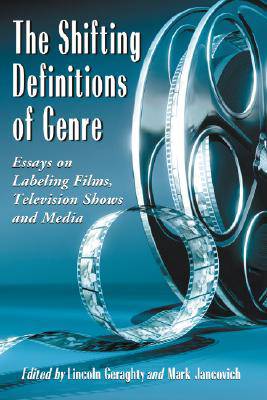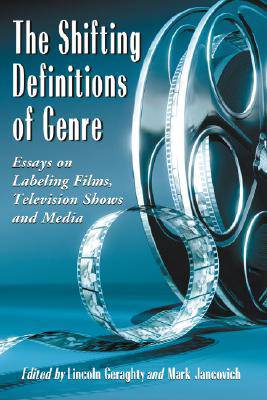
- Retrait gratuit dans votre magasin Club
- 7.000.000 titres dans notre catalogue
- Payer en toute sécurité
- Toujours un magasin près de chez vous
- Retrait gratuit dans votre magasin Club
- 7.000.000 titres dans notre catalogue
- Payer en toute sécurité
- Toujours un magasin près de chez vous
The Shifting Definitions of Genre
Essays on Labeling Films, Television Shows and Media
Lincoln Geraghty, Mark JancovichDescription
Histories of science fiction often dicuss Fritz Lang's Metropolis as a classic work within the genre--yet the term "science fiction" had not been invented at the time of the film's release. If the genre did not have a name, did it exist? Does retroactive assignment to a genre change our understanding of a film? Do films shift in meaning and status as the name of a genre changes meaning over time?
These provocative questions are at the heart of this book, whose thirteen essays examine the varying constructions of genre within film, television, and other entertainment media. Collectively, the authors argue that generic labels are largely irrelevant or even detrimental to the works to which they are applied.
Part One examines the meanings of genre and reveals how the media is involved in the production and dissemination of generic definitions. Part Two considers specific films (or groups of films) and their relationships within various categorizations. Part Three focuses on the closely tied concepts of history and memory as they relate to the perceptions of genre.
Spécifications
Parties prenantes
- Auteur(s) :
- Editeur:
Contenu
- Nombre de pages :
- 268
- Langue:
- Anglais
Caractéristiques
- EAN:
- 9780786434305
- Date de parution :
- 07-04-08
- Format:
- Livre broché
- Format numérique:
- Trade paperback (VS)
- Dimensions :
- 158 mm x 229 mm
- Poids :
- 367 g







